Mozambique: Minister claims that 2026 justice congress is crucial for “inclusive dialogue”
President Filipe Nyusi attacks “social media that destroy the country” – A Verdade
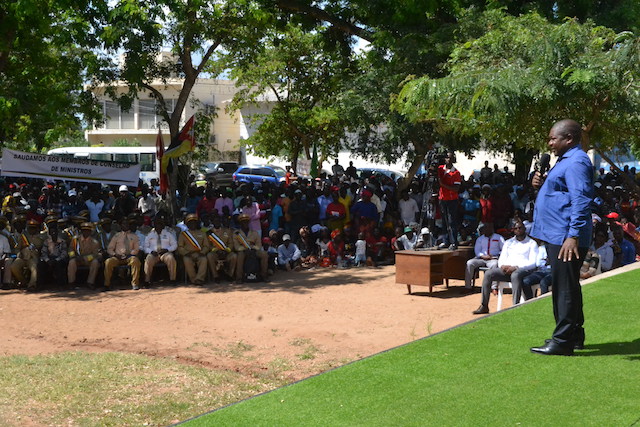
Photo: A Verddade
After two days of the Council of Ministers “listening to the population and influential people” in Pemba about the attacks that have terrorised Cabo Delgado province since 2017, President Filipe Nyusi revealed this Tuesday (11 February) that there were no objective plans which may be made public to end the activities of the “evildoers”, and attacked the “social media that destroy the country, [while] other countries in the world use [social media] for development”.
“In relation to the security situation in Cabo Delgado Province, particularly in the north, what was done in this session was to listen to the population, to influential people, listen to the district government and the provincial government itself, so that the Government can respond with actions to bring solutions to this situation of instability, in short, consultation was carried out. After consultation, the Government will be in a position to define the best strategies and find effective solutions to this situation of unrest in the Province of Cabo Delgado,” spokesperson Minister Helena Khida said.
“Regarding the emergency caused by the rainy season, which often results in flooding, what happened was that each sector that has an impact has already brought plans, some are already underway and others are aimed at implementation in the short and medium term”, Khida, who is also Minister of Justice, Constitutional and Religious Affairs, added.
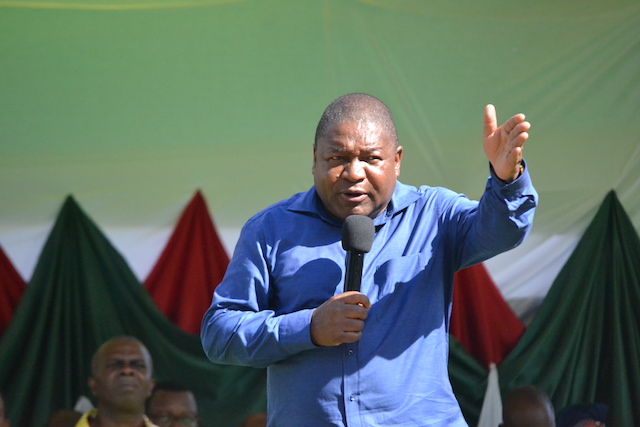
Following the Council of Ministers meeting, which was extended to members of the provincial and district governments, the president lead a rally in Pemba, where he reiterated a similar position as on other recent occasions:
“Malefactors are killing the population, are destroying and burning houses. Those people, who are not only Mozambicans, but the majority are young Mozambicans, are creating disturbances and impeding the development of Mozambicans. They don’t show their faces, yet – they are ashamed, because in fact they do not really know why they are killing people, because they do not say “I have killed”. Therefore, an approach has been a little difficult.”
Concerning what had happened over the two days, “The questions were raised, that were identified and the government left here with all this information, with all the findings, and let’s sit down, inside the government first, and then together with the Defence and Security Forces that were here and followed the whole process. We know how they are acting now, how they are cowards, they recruit young people, they cheat young people, they give money and then, when the young people go, they don’t come back,” President Nyusi said.
“We cannot dramatise what happens. Unfortunately, we have compatriots who like it when Mozambicans suffers (…) I do not know this tradition, when there is a death on the door beside someone will show up laughing (…) They even take a photograph of a dead person just to say ‘this one has died’. This is not the culture of Mozambicans. But there are some who cherish, who persecute to be able to dramatise or publicise the activity of the murderers against the Mozambicans,” Nyusi said.
On how to end the attacks in Cabo Delgado, the president said that “In no war does anyone say ‘I will do this’”. He also said that the influential personalities of the province he had met claimed that was “social media that destroy a country; other countries in the world use it to develop their countries, but we are deceived to destroy”.
Filipe Nyusi’s position brings to mind his predecessor’s dislike of social media. “Facebook and Twitter have the potential to transform into spaces that generate representations, factories of unattainable dreams and infinite mirages and expectations that could lead to the marginalisation of a work culture,” Armando Guebuza said at the beginning of his second term.
By Adérito Caldeira


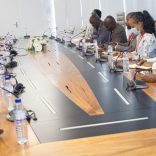

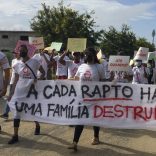
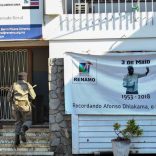

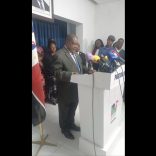




Leave a Reply
Be the First to Comment!
You must be logged in to post a comment.
You must be logged in to post a comment.